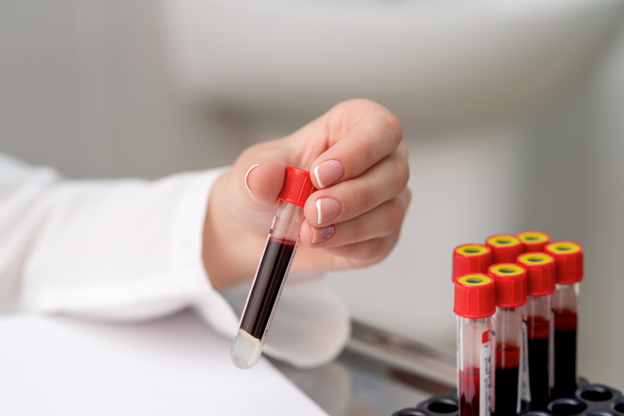Hepatitis A is a viral infection that affects the liver, causing inflammation and damage. The infection is typically spread through contaminated food and water, as well as through close contact with an infected person. Hepatitis A is a preventable disease, but if it goes undiagnosed and untreated, it can lead to serious complications. The Hepatitis A test is essential for diagnosing this infection early and ensuring proper treatment.
What is Hepatitis A?
Hepatitis A is a viral infection caused by the hepatitis A virus (HAV), which primarily affects the liver. The virus can cause acute liver disease, leading to symptoms such as jaundice (yellowing of the skin and eyes), fatigue, nausea, vomiting, and abdominal pain. Unlike hepatitis B and C, hepatitis A does not lead to chronic liver disease, but it can cause severe illness, especially in older adults and those with weakened immune systems.
The virus is usually transmitted through the fecal-oral route. This means that it spreads when food or water is contaminated with fecal matter from an infected person, or through close personal contact with someone who has the virus.
Why is the Hepatitis A Test Important?
The Hepatitis A test plays a crucial role in identifying the virus and preventing its spread. Early diagnosis of hepatitis A allows for better management of the disease and helps protect others from becoming infected. The test is also important for:
- Diagnosing Active Infection: The Hepatitis A test detects specific antibodies (IgM and IgG) produced by the body in response to the virus. The presence of IgM antibodies indicates an active or recent infection, while IgG antibodies signify past infection or vaccination.
- Preventing the Spread: Early detection helps reduce the risk of transmitting the virus to others, especially in settings like schools, daycare centers, and healthcare facilities.
- Guiding Treatment: Although there is no specific antiviral treatment for hepatitis A, early detection allows healthcare providers to monitor the condition more closely and manage symptoms effectively.
How is the Hepatitis A Test Done?
The Hepatitis A test is a simple blood test that can be performed in a clinic or laboratory. The procedure involves drawing a small sample of blood from a vein in your arm. The blood sample is then tested to measure the presence of antibodies against the hepatitis A virus.
There are two types of antibodies that are measured in the test:
- IgM Antibodies: These are the first antibodies produced by the body in response to a new infection. The presence of IgM antibodies indicates that you are currently infected with the virus.
- IgG Antibodies: These antibodies appear later in the infection or after vaccination and indicate past exposure or immunity to the virus.
When Should You Get a Hepatitis A Test?
The Hepatitis A test is recommended in the following situations:
- Exposure to an Infected Person: If you have had close contact with someone diagnosed with hepatitis A, especially in a shared living environment, you should get tested.
- Traveling to High-Risk Areas: If you are traveling to countries with inadequate sanitation and hygiene practices, where hepatitis A is common, it is advised to get tested before departure.
- Symptoms of Hepatitis A: If you experience symptoms such as fatigue, jaundice, loss of appetite, dark urine, or abdominal pain, you should get tested.
- As Part of Routine Health Check-Ups: In some cases, your healthcare provider may recommend testing as part of a routine health check-up if you are at risk of exposure.
What Do the Test Results Mean?
- Positive IgM Test: If the test shows positive IgM antibodies, it means you have a recent or current hepatitis A infection.
- Positive IgG Test: If the test shows positive IgG antibodies, it means you have either recovered from a past hepatitis A infection or have been vaccinated and are immune to the virus.
- Negative Results: If both IgM and IgG antibodies are negative, it means you have not been exposed to the virus, and there is no active infection.
Treatment and Prevention of Hepatitis A
Although there is no specific antiviral treatment for hepatitis A, most people recover fully with supportive care, which includes rest, fluids, and maintaining a healthy diet. In severe cases, hospitalization may be required to manage complications, particularly if the liver is severely affected.
The best way to prevent hepatitis A is through vaccination. The hepatitis A vaccine is safe, effective, and recommended for people traveling to areas with high hepatitis A rates, as well as those who are at risk of exposure. The vaccine is administered in two doses, with the second dose given six months after the first.
Conclusion
The Hepatitis A test is an essential tool in diagnosing this viral infection early and preventing its spread. By understanding the importance of the test and taking steps to protect yourself and others through vaccination and good hygiene, you can significantly reduce your risk of contracting hepatitis A. If you suspect you’ve been exposed to the virus or are experiencing symptoms, don’t hesitate to get tested and seek medical advice.
Schedule your test today at Medifine Diagnostics!


